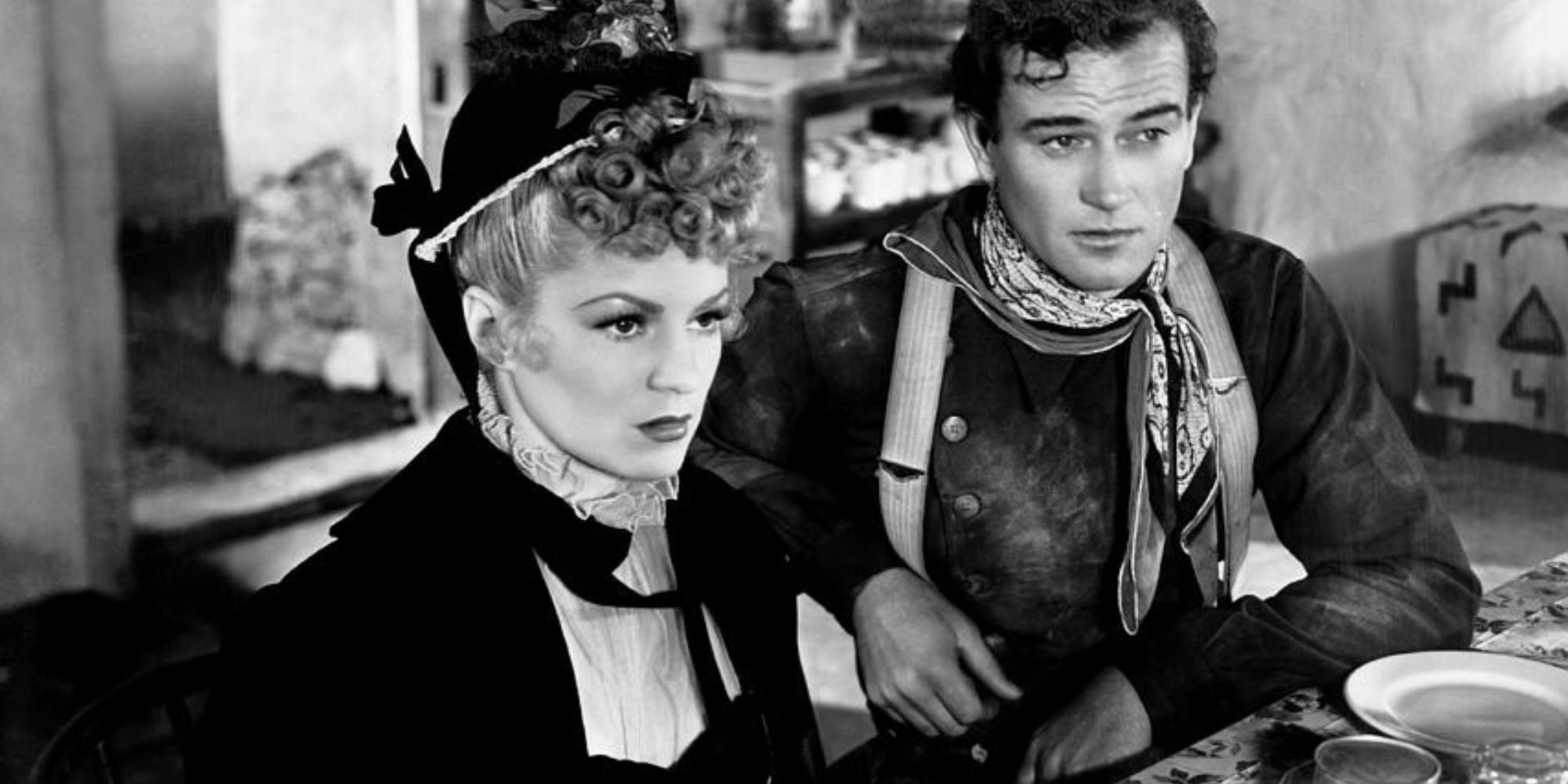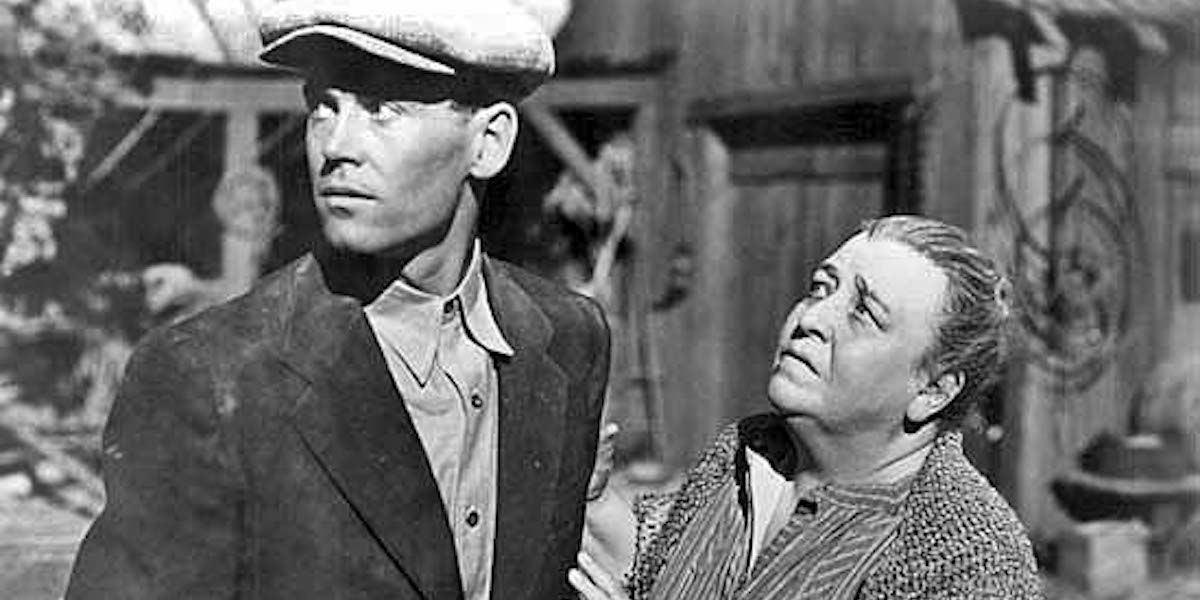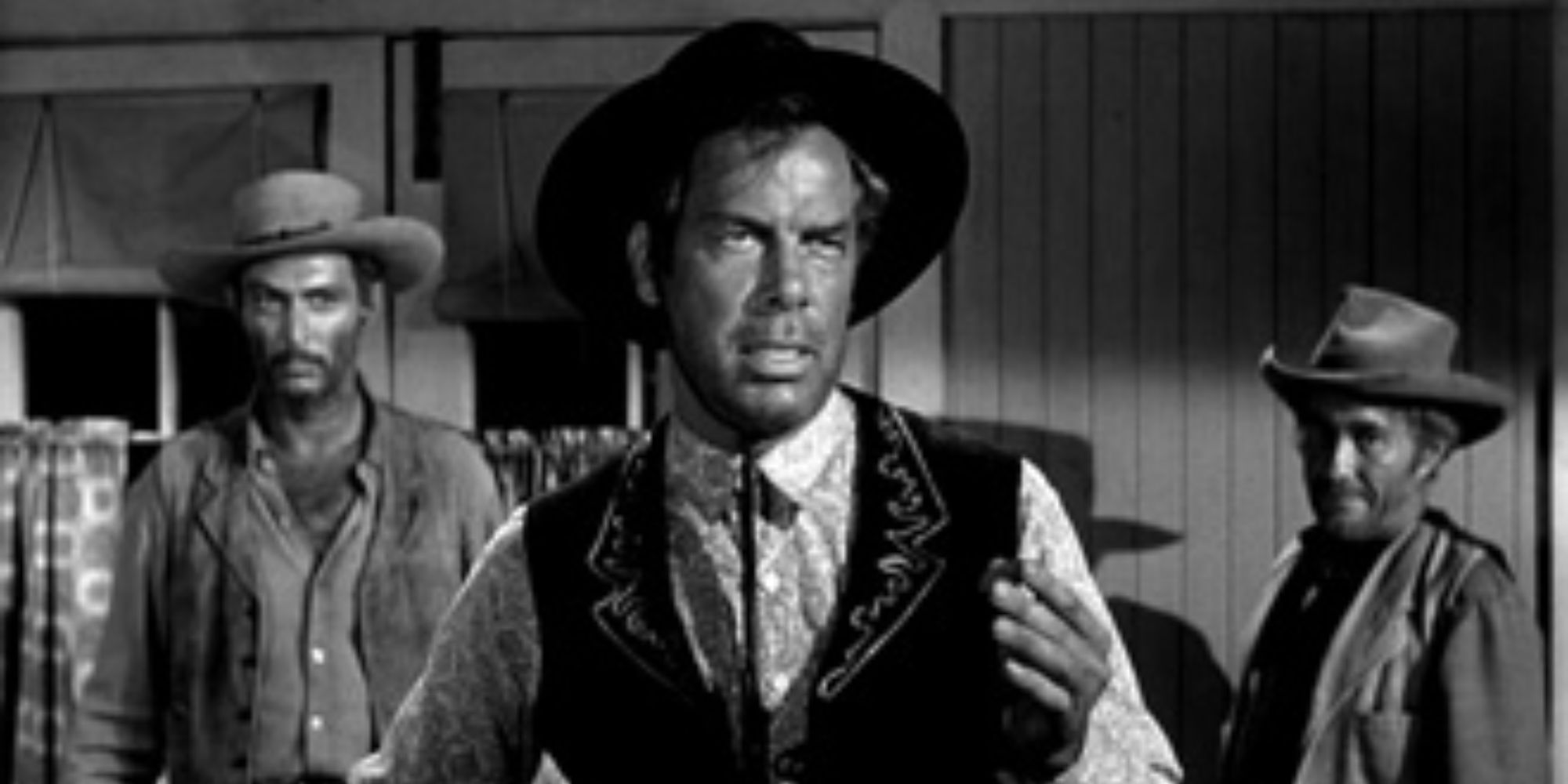
[ad_1]
The Large Image
- John Ford, essentially the most embellished director of all time, by no means received an Oscar for any of his iconic Western movies regardless of being essentially the most vital Western movie director of all time.
- Ford’s visible and thematic type of storytelling left a long-lasting affect on the Western style, together with his sparse landscapes and iconic pictures shaping the style’s future developments.
- Though Ford received 4 Greatest Director Oscars for movies in several genres, his expertise with directing many Westerns might have negatively affected his probabilities of profitable an Oscar for the style as a result of anticipated hallmarks and plot factors. Moreover, the Academy’s historic bias in opposition to Westerns might have additionally performed a task in his lack of recognition on this style.
There’s a nice obsession individuals have with making an attempt to quantify excellence. Any debate over the best athlete in any sport all the time includes the variety of championships or gold medals they received, what number of years they held the title, or how lengthy their profitable streak lasted. Clearly, the trophies usually are not every part, however they supply an necessary benchmark when making an attempt to stack essentially the most achieved individuals in any class in opposition to one another. On the subject of motion pictures, in fact, the gold commonplace is the Academy Awards. Loads of the administrators who may lay a declare to being the best of all time have been amply rewarded on the Oscars: Steven Spielberg, David Lean, Martin Scorsese, William Wyler, Frank Capra, and dozens of others ascended to Oscar glory through the years, and even a number of the biggest who by no means received Greatest Director had been not less than nominated a number of occasions as a testomony to their constantly wonderful work, like Stanley Kubrick and Alfred Hitchcock. However with regards to the Academy Awards, there is an undisputed “biggest director of all time” — not less than if the one factor you depend is the quantity of Oscar {hardware} in his closet — and that’s John Ford.
Ford goes down in cinematic historical past most notably as being the quintessential director of the Western style for a whole era. Whether or not it’s with Stagecoach within the Nineteen Thirties, My Darling Clementine and She Wore a Yellow Ribbon within the Forties, The Searchers and The Horse Troopers within the Nineteen Fifties, or The Man Who Shot Liberty Valance in 1962, Ford’s affect on the style produced a number of the most iconic Westerns ever made. It is among the most curious ironies of Oscar historical past, consequently, that essentially the most embellished director of all time, who can also be the most vital Western movie director of all time, by no means received an Oscar for a single one among his Westerns.
How John Ford Impacted the Western Fashion
It comes together with the territory of being the person who created Western classics like Stagecoach, The Searchers, and The Man Who Shot Liberty Valance, however the visible and thematic type of Ford’s storytelling left an indelible mark on the Western and its future developments. Ford was one of many earliest pioneers of the grand however stark and sparse sweeping landscapes that grace the cinematography of each Western, and his simple simplicity of favor completely suited the ethical panorama of the Western style as a complete. This sparse simplicity additionally gave rise to a number of the most iconic pictures in cinema, just like the door body opening and shutting on the solitary determine of Ethan Edwards because the framing shot at first and finish of The Searchers, and has impacted filmmakers ever since.
John Ford’s Directing Skills Weren’t Confined to Westerns
The primary a part of any reply to the enigma of Ford’s unawarded Westerns is that, for all his well-deserved accolades as the good Western director, his pursuits and talents ranged far past one style, and he proved to be extraordinarily adept at telling quite a lot of several types of tales in numerous genres. In truth, whereas he received 4 Greatest Director Oscars and by no means for a Western, no two movies he did win for had been in the identical style.
His first directorial win, for instance, was for The Informer in 1935, a criminal offense drama set in Dublin. His second was for The Grapes of Wrath (1940), an adaptation of the John Steinbeck novel. His third was for How Inexperienced Was My Valley (1941), a household drama set in a Welsh mining city, maybe most well-known today for beating Citizen Kane for Greatest Image that yr — although as a superb movie it’s unfairly overshadowed by Orson Welles’ masterpiece. His remaining directing Oscar was for The Quiet Man (1952), a delicate and heartfelt romantic comedy. Every of these movies required a distinct kind of setting and route, and it’s a testomony to Ford’s ability as a director that he was in a position to win so many Oscars for such totally different initiatives.
Why Did not Ford Ever Win an Oscar for a Western?
Regardless of his many accolades, Ford’s incapability to win for his most iconic style remains to be puzzling. If his expertise as a director had been so regularly acknowledged, why was he by no means awarded for the style through which he was most expert and had essentially the most expertise, and was most keen about?
Satirically, his expertise with directing Westerns is probably going a part of the rationale why he by no means received for guiding one. As a result of he directed so lots of them, a “John Ford Western” had anticipated hallmarks and plot factors, and consequently didn’t stand out as a lot as they need to have for the wonderful filmmaking they displayed — exactly as a result of Ford made an amazing lots of them. It’s telling, on this regard, that the one time Ford was even nominated for Greatest Director for a Western was for Stagecoach in 1939, which was one among his earliest Westerns and earlier than he grew to become irrevocably related to them. As he made so many Westerns, it was possible the sheer quantity of his work that satirically negatively affected his probabilities with a Western; when his baseline was a selected style of movie, his initiatives in several genres had been those that had been extra generally seen, lauded, and in the end awarded.
However even that angle doesn’t inform the entire story. Virtually definitely a part of the rationale for the empty shelf for Western Oscars has to do with an odd bias in opposition to Westerns usually on the Oscars. From the very first Academy Awards ceremony till the yr 1990, there was just one Western that really received Greatest Image: 1931’s Cimarron. Surprisingly sufficient, throughout the heyday of Westerns and their peak recognition, within the John Wayne and early Clint Eastwood period from the 40s by the 70s, not a single Western received Greatest Image.
The Academy’s distaste for Westerns on the time appears unusual, however it might have been due exactly to the recognition of the style on the time. There may be usually a perceived disconnect between what’s inventive and what’s in style with crowds — in spite of everything, superhero movies have dominated the field workplace for the final 15 years, however none of them have ever received Greatest Image both. Maybe, as nicely, because of the plain aesthetic and thematic type of Westerns, the Oscar voters have mistaken the stark type for a “easy” story. In both case, it has been a critical oversight in Oscar historical past. To take one instance, the movie that takes the high prize within the AFI checklist of the highest ten Westerns, Ford’s The Searchers, regardless of its wonderful storytelling and filmmaking (and arguably John Wayne’s strongest and nuanced efficiency of his profession), was not nominated for a single Oscar.
It’s not as if Ford is hurting for a scarcity of recognition, however it’s a curious quirk of cinematic historical past that essentially the most well-known and awarded director of Westerns in historical past by no means received a single award in his most beloved style. Whatever the oversight, the buildup of Oscars is in the end secondary: Ford’s work itself stays, and the judgment of his work with time has been a testomony to the endurance of his Westerns and the everlasting mark that he left on the style.
[ad_2]


